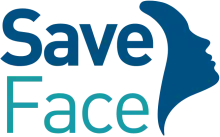From June 1st The NMC will be aligning their standards on remote prescribing, with other regulators. The new wording is unambiguous,
The NMC is updating its position on the remote prescribing of non-surgical cosmetic medicines, including certain anti-wrinkle injections and aesthetic emergency kit items.
From 1 June 2025, nursing and midwifery prescribers will be required to consult with people face-to-face before issuing prescriptions for these procedures.
We expect all nurse and midwife prescribers to deliver safe and effective prescribing practice every day, but inconsistent regulation of non-surgical cosmetic practice can present risks to people who use these services and the public. Face-to-face consultations support the mitigation of these risks, and adopting this position will better align the NMC with other health and care regulators.
This position is consistent with the requirements of the RPS Prescribing Competency Framework and the High level principles for good practice in remote consultations and prescribing which includes the requirement that healthcare professionals make patient safety their first priority and ensure that adequate clinical assessments are always undertaken
Whilst Save Face appreciates this change may have a significant impact on the business model of non-prescribers, having monitored where prescribing practice impacts patient complaints and adverse impacts, we changed our own standards in 2015 to explicitly exclude non-prescribing nurses (and those who provided training or remote prescribing for non-healthcare practitioners) from our register unless we were provided the name and registration details of their prescribing partner and both confirmed they were adhering to a prescribing partnership protocol, which included face to face assessment and record keeping as per the new NMC standard.
Armed with cases and data, we began lobbying the NMC in 2016 and have had several meetings with the Standards team to reiterate our concerns that NMC standards failed to protect the public and indeed non-prescribing nurses, from the risks associated with poor prescribing practice. Fitness to practice cases have been littered with poor prescribing practice in medical aesthetics which we feel has further motivated the NMC to make this change.
For those non-prescribing nurses and pharmacists who feel this change is unwarranted, we urge you to appreciate the following:
You deserve to have more than a transactional relationship with your prescriber, and your patients will appreciate and respect how prescriber and practitioner work together.
A prescriber is prescribing for patients whose assessment and care they are responsible for. Whilst they can delegate administration, they cannot delegate assessment and subsequent responsibility for on-going care, so we hope to see those who have no direct experience in medical aesthetics to cease selling prescriptions.
You deserve to have transparently shared responsibility and shared care, particularly if adverse outcomes or complications arise.
Hopefully this change will also expand the services provided by prescribers, to include supervision and mentorship.
You can read the full NMC statement here.
Guidance for prescribers can be found here.



